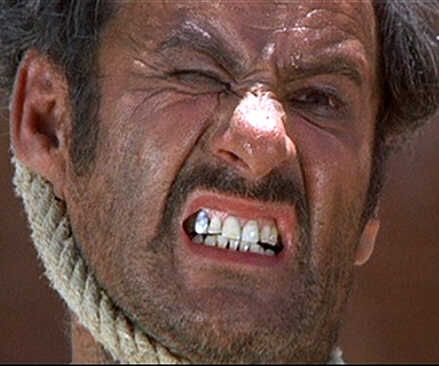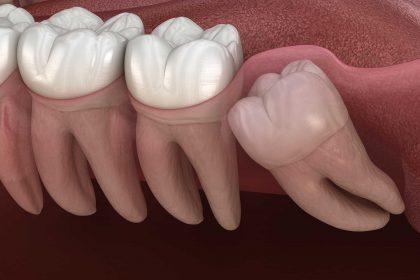Full dental crowns, inlays, and onlays (partial crowns) are often the last, best option for saving your natural teeth when tooth decay, attrition, or a crack in the tooth’s surface is significant. Too many people, though, postpone treatment until it’s too late out of fear of the sting that dental crown cost will do to their wallets. But just how expensive is a dental crown procedure?
The cost of dental crowns can average anywhere from $800 to $2,500 depending on what the crown is made of, whether it’s porcelain, zirconia, metal, or porcelain fused to metal. A dental insurance plan might lower the costs somewhat, but there can also be additional costs for related procedures such as build-ups, root canal treatment, or dental implants.
What is a dental crown and why might you need one?
A full dental crown is a long-term cap that goes over and around the entire biting surface of a damaged tooth or dental implant, sort of like a real crown on a king or queen’s head. The crown surrounds the weakened tooth, protecting it, holding it together, and making it stronger. A crown gives a tooth that might otherwise collapse due to major cavities or cracks a second chance for survival, offering the potential of many extra years of life.
Whether or not a tooth needs a new crown depends on its condition. Dentists try to be conservative in their treatment, meaning they want to save as much of the natural tooth structure as possible before resorting to a crown. Remember, teeth cleanings are less expensive than fillings; fillings are less expensive than crowns; and crowns are less expensive than implants. The progression goes like this:
| Healthy tooth | → | Dentist recommends continued good oral hygiene and regular checkups and cleanings. |
| Demineralization | → | When a tooth shows early signs of cavity formation, it can still be “remineralized” with fluoride to recover its healthy state. |
| Small cavity | → | Dentist will repair the damaged tooth and use small dental fillings to fill the cavity with a durable metal or composite material. |
| Large cavity or cracked tooth | → | Dentist will try to save as much of the natural tooth structure as possible. In some cases a large filling will work, but often the structure of the remaining tooth will not support a filling, so a crown will be fabricated instead. If the cavity has compromised the pulp of the tooth, a root canal might be prescribed. For extensive damage, the tooth might need to be removed, in which case a dental implant is an option in some cases. Implants need to be capped by dental crowns. |
In every step along the way, conservative dentistry will be practiced to save as much of the existing natural tooth structure as possible. Your dentist doesn’t want to give you a crown. Your dentist would much rather educate you to take good care of your teeth so that you can work together to prevent a crown from becoming a necessity.
Whether from neglect or injury, though, crowns happen. And when the time comes, there are a few options for the type of crown material:
METAL ALLOY CROWNS — Metal is the traditional material used to make dental crowns. You’ll recognize them from watching old Western movies. Alloys containing gold, nickel, cobalt, chromium, palladium, platinum, silver, or titanium were classically used for molars, where they are less visible. Metal alloy crowns are less commonly used today. Prices can range anywhere from $900 to $2,500 depending on the alloy used, with an average cost of a crown around $1,100. In rare cases a patient might have an allergic reaction to certain metals, in which case a ceramic crown (made of porcelain or zirconia) will be used instead.

GOLD CROWNS — Gold crowns can be made entirely of gold or gold alloy, and gold crowns can also be ordered as a PFM (porcelain fused to metal), which is made from a combination of gold and porcelain. A strong but more expensive option, gold can be a great choice for molars. Gold crowns can cost up to $2,500.
PORCELAIN CROWNS — Porcelain crowns are very natural looking and can be custom made to match the shade of your existing teeth. They are the most expensive option — ranging from $1,000 to $2,500, with an average price of $1,300 — and can be a great choice for front teeth (display teeth).
ZIRCONIA CROWNS — Like porcelain, zirconia are ceramic crowns. Zirconia is very strong and durable, making it a good choice for molars. Zirconia costs about the same as a porcelain crown.
PORCELAIN-FUSED-TO-METAL CROWNS — Fusing porcelain over a metal base creates a crown that is both strong and natural looking. They can be placed anywhere in the mouth, although sometimes a visible ring of metal at the bottom of the crown makes it a better option for molars. The price range can be anywhere from $800 to $2,400, with the average being $1,100.
The total cost of a dental crown will vary depending on a number of factors, including the cost of living in your local area, the size and location of the tooth you need crowned, the material used, the skill of the craftsman who makes it, and any additional procedures you might need related to the crown, such as build-up, root canal, or dental implant. The procedure will take at least two visits: the first to prep the tooth and place a temporary crown, and the second for placement of the permanent crown after it has been fabricated. Be wary of steeply discounted dental crowns, which might be made from sub-standard materials.
On the plus side, dental crowns can last for many years, often longer than the lifespan of a car or major appliance. A crown that costs $1,100 but is with you long-term, and all day every day, is a pretty dang good investment.
Do insurance plans cover dental crown cost?
If you’re lucky enough to have a dental insurance plan, it might or might not help cover the cost. A dental plan often has a coverage limit, and in many cases will cover only half the cost of a dental crown. Your insurance provider won’t cover crowns that are purely cosmetic, and you’ll probably have to cover the difference between the least expensive crown material and the one that works best for you. Out-of-pocket costs for dental crowns and related procedures for insured patients typically range anywhere from $280 to $1,850.
What are the costs of related dental procedures?
We’ve already mentioned root canals and dental implants. A root canal on a front tooth, which is easier to access, is less expensive at around $1,000. Bicuspid root canal treatment will cost around $1,100. And root canals on molars can cost from $1,300 to $1,600. While it’s possible that a tooth that needs a root canal can be simply given a filling afterward, often these teeth are so structurally damaged already that a crown must be added to the root canal procedure at an additional cost.
A dental implant must be accompanied by a crown, so the estimates are often given together — although in many cases you’ll be referred to a dental specialist for at least part of the job. Receiving a dental implant is a multi-step process that involves extraction of the existing tooth, possible prep of the bone and gums, placement of the implant, time for the bone to strengthen around the implant, and finally placement of the crown itself. Altogether, costs could start as low as $3,500 and go up to $6,700 for a single implant with a crown.
If you’re lucky and you get to the dentist soon enough, you might not need a root canal or an implant. Costs in this case will be relatively minimal, including x-rays and prep work as the dentist shapes your tooth to accommodate your new crown.
Pros and cons of a dental crown
The pros and cons of a new dental crown are straightforward. A crown means a likely end to pain in that tooth for possibly years to come. It means you’ve saved a tooth that is otherwise soon to fail (or perhaps the tooth has already failed and you’re putting a natural-looking crown onto an implant, which could last a lifetime). The cons are simply the cost. Crowns can be expensive up front. If the price seems out of your budget, though, consider that this is a long-term investment, and don’t be afraid to shop around for a dentist willing to offer a payment plan or discount.
Alternatives to dental crowns
There are really no alternatives if you already need a crown. If you need a crown, you need a crown. It’s as simple as that. If you need a crown and you don’t get one, pretty soon you’ll lose a tooth — and that will be a painful process. Then you’ll need an implant — with a crown — or a dental bridge, which is less than optimal.
You do, however, have an option if your teeth are still in good shape — and that’s to continue practicing excellent oral hygiene. Brush at least twice daily, floss once daily, use a Waterpik, see your dentist twice a year for check-ups, and get regular cleanings from a registered dental hygienist. Follow these dental care practices, and there’s a good chance you’ll put off needing crowns, root canals, or dental implants for many years to come!




